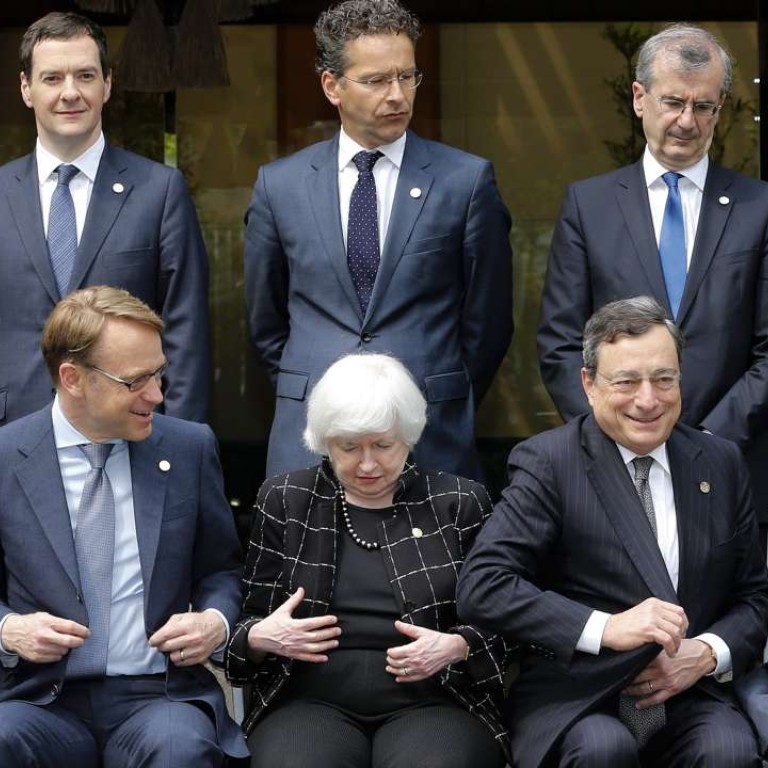
How market misbehaviour blinds us to our individual rights and duties
Andrew Sheng calls for a concerted effort to secure the global future, as current economic theory fails to see the systemic nature of the problem arising from individual greed
Before the global financial crisis of 2007, the market was God and the master who made the belief possible, former US Federal Reserve chairman Alan Greenspan, walked on water. After the crisis shook belief in markets, the new high priests are European Central Bank chief Mario Draghi and Haruhiko Kuroda, governor of the Bank of Japan. They are trying to convince markets that central banks can lift economies from deflation, if not with negative interest rates, then helicopter money. But, for believers in free markets and minimal intervention, unconventional monetary policy is heresy – markets are now driven and underpinned by central bank intervention of unprecedented scale and price.

The pendulum of economic thought has swung from excessive Keynesian state intervention to Milton Friedman-led free market behaviour and back again. Unfettered markets created unprecedented financial crises, again requiring unprecedented state intervention.
Ratings agency Fitch cuts global growth forecast to 2.3 per cent, weakest since financial crisis
Benoit Mandelbrot and Richard Hudson’s 2004 book, The (Mis)behaviour of Markets, applied Mandelbrot’s fractal mathematics to show how in nature and markets, if every participant behaves in line with very simple rules, the collective outcome has very complex patterns, which may not be chaotic at all. In life, most of us deal with complexity by adopting very simple rules of behaviour. The statesman who believes in free markets understands the need for minimal intervention, but the default reaction of a state planner is to intervene through regulation or directly through state-owned firms.
We need to recognise that markets and politics need balance ... Corruption of either politics or markets is two sides of the same coin
As there are neither perfect markets nor perfectly planned economies, most markets vary between the two. But if central banks are driven to greater intervention to maintain financial stability, the markets are no longer responding to market forces, but waiting for the next intervention. And because central bankers are human, central-bank-driven markets will fail like other state-dominated markets.
There is no ideal system. Today, internet giants achieve market dominance by offering “free” search engines and web memory. In reality, the internet user willingly trades private information and market behaviour records in exchange. Internet platforms, thanks to superior data analytics, are the 21st century “capitalist barons”; they not only control the information railroad but are oligopolist owners of data, just as the 19th century barons owned oil.
We need to recognise that markets and politics need balance. We can’t get rid of political influence in markets unless political funding is rationalised and made more transparent. Corruption of either politics or markets is two sides of the same coin.
Current economic theory fails to see that the problem has become systemic. We are regulating the global market in segments, not understanding that the system as a whole has become more concentrated, unequal, imbalanced and fragile. We have a fallacy of composition for all experts – every problem can be blamed on others, and if you give central banks or regulators more power, the problem will be solved. It will only worsen.

Lehman Brothers’ payout to city receiver after minibonds fiasco slashed by 75 per cent
Individual greed, for money or power, has a system-wide cost. Free market economics operates on individual freedom to consume without constraint. The result is greater pollution, more natural disasters and resultant human conflict or migration. Given a small world of limited resources, today’s sharing economy requires us to recognise that we are just stewards of our human and natural environment. We need to share and conserve more.
The concept of a market or state misbehaving blinds us to the fact that we are a community of both state and market, in which each of us has individual rights as well as communal responsibilities. Market misbehaviour is state misbehaviour, but most of all, our individual misbehaviour. If we are truly stewards of our own life and community, we have responsibilities to make sure we do not misbehave.
Andrew Sheng writes on global issues from an Asian perspective

